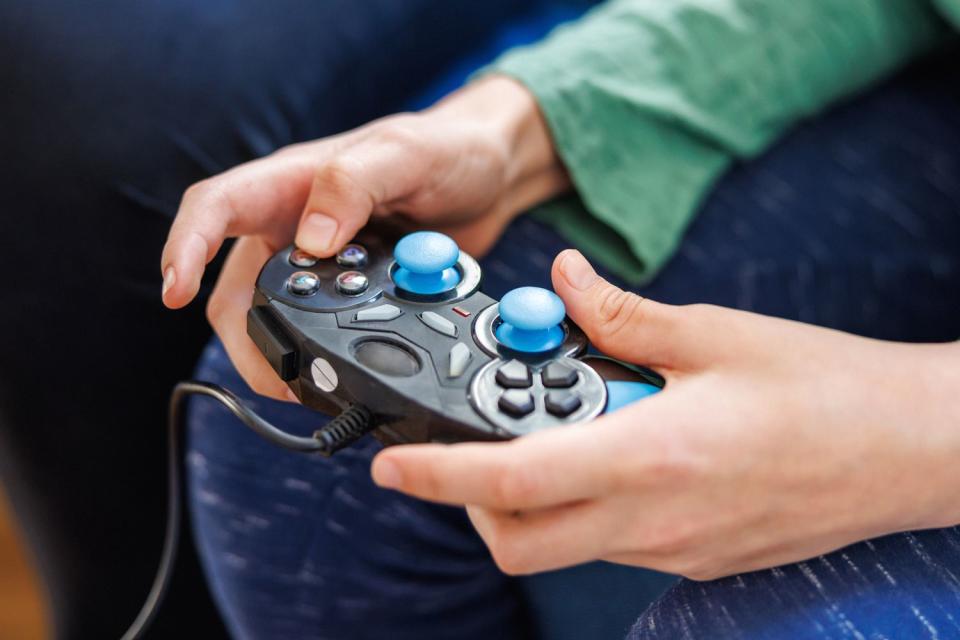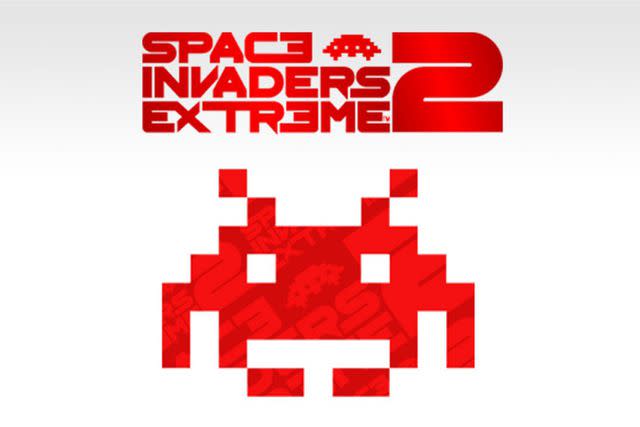Playing “Space Invaders” Could Help Kids at Risk For Dyslexia with Reading
Action video games may help children at risk for dyslexia improve how they process sounds

Getty
Stock image of a child playing a video game.Playing action video games like Space Invaders may help children who are at risk for developmental dyslexia by improving their ability to hear and process sounds, a new study says.
“Action video-games (AVGs) could improve reading efficiency, enhancing not only visual attention but also phonological processing,” which is the way sounds are processed to understand spoken and written language, according to a new study published in Nature.
The study followed preschoolers who were at risk, and not at risk, for developmental dyslexia, which the Cleveland Clinic says “interferes with how your brain uses spoken language to ‘decode’ writing.”
Children were defined as “at risk” for dyslexia because they showed impairment in areas like phonemic awareness (understanding how small sounds make up words). They were randomly assigned different video games to play for 45 minutes a day, four times per week, for six weeks.

Nintendo
Cover art for Space Invaders Extreme 2.The study found that children who played the action video game, Space Invaders Extreme 2, had “a significantly higher improvement” than their peers.
Like the original Space Invaders, the new version has the player shoot at aliens that slowly approach the bottom of the screen, and as the study pointed out, “this game required accurate spatial and temporal attention to pass to the subsequent level.”
The study found that action video games “induce a large, long-lasting and clinically relevant effect on the tuning of phonological representations in pre-readers at risk for [developmental dyslexia], by accelerating the sampling rate of sensory evidence and reducing the sluggish attentional shifting.”
The authors note that incorporating action video games into early interventions could help children with other disorders as well.
“According to these findings, AVG could be leveraged for preventing multisensory processing difficulties in several neurodevelopmental disorders,” the authors wrote, adding that in addition to children with developmental dyslexia, “attention deficit and hyperactivity disorder, developmental coordination disorder, and autism spectrum disorder, as well as ... typically developing children,” could benefit as well.
Related: Kelly Clarkson Reveals Daughter River Is Bullied for Her Dyslexia as Henry Winkler Offers Advice
“The present findings indicate that this specific multisensory attentional training positively affects how phonemic awareness develops in pre-readers at risk for developmental dyslexia, paving the way for innovative prevention programs.”
For more People news, make sure to sign up for our newsletter!
Read the original article on People.


